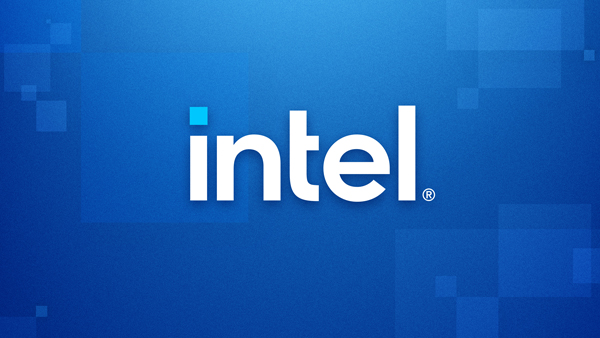Intel Announces Termination of Tower Semiconductor Acquisition

Intel continues to advance plans to create world-class system foundry as part of its IDM 2.0 strategy.
SANTA CLARA, Calif., Aug. 16, 2023 – Intel Corporation (Nasdaq: INTC) today announced that it has mutually agreed with Tower Semiconductor (Nasdaq: TSEM) to terminate its previously disclosed agreement to acquire Tower due to the inability to obtain in a timely manner the regulatory approvals required under the merger agreement, dated Feb. 15, 2022. In accordance with the terms of the merger agreement and in connection with its termination, Intel will pay a termination fee of $353 million to Tower.
“Our foundry efforts are critical to unlocking the full potential of IDM 2.0, and we continue to drive forward on all facets of our strategy,” said Pat Gelsinger, CEO of Intel. “We are executing well on our roadmap to regain transistor performance and power performance leadership by 2025, building momentum with customers and the broader ecosystem and investing to deliver the geographically diverse and resilient manufacturing footprint the world needs. Our respect for Tower has only grown through this process, and we will continue to look for opportunities to work together in the future.”
Stuart Pann, senior vice president and general manager of Intel Foundry Services (IFS), said, “Since its launch in 2021, Intel Foundry Services has gained traction with customers and partners, and we have made significant advancements toward our goal of becoming the second-largest global external foundry by the end of the decade. We are building a differentiated customer value proposition as the world’s first open system foundry, with the technology portfolio and manufacturing expertise that includes packaging, chiplet standards and software, going beyond traditional wafer manufacturing.”
IFS has made significant strides over the past year as demonstrated by its more than 300% year-over-year revenue increase in the second quarter of 2023. This momentum is further illustrated by Intel’s recent agreement with Synopsys to develop a portfolio of intellectual property (IP) on Intel 3 and Intel 18A process nodes. Intel was also awarded the first phase of the U.S. Department of Defense’s Rapid Assured Microelectronics Prototypes - Commercial (RAMP-C) program, with five RAMP-C customers in design engagement on Intel 18A. In addition, Intel landed a multigeneration agreement with Arm to enable chip designers to build low-power compute system-on-chips (SoCs) on 18A, and Intel signed a strategic partnership with MediaTek to use IFS’ advanced process technologies.
Forward-Looking Statements
This release contains forward-looking statements that involve a number of risks and uncertainties. Such statements include those regarding Intel’s business plans and strategy and anticipated benefits therefrom, including with respect to its external foundry ambitions, internal foundry model, IDM 2.0 strategy, manufacturing capacity expansion plans and customer value proposition. Such statements involve many risks and uncertainties that could cause our actual results to differ materially from those expressed or implied, including: changes in demand for Intel’s products; Intel’s failure to realize the anticipated benefits of its strategy, plans, and proposed transactions; the high level of competition and rapid technological change in the semiconductor industry; the significant upfront investments in R&D and Intel’s business, products, technologies, and manufacturing capabilities; the complexity and fixed cost nature of semiconductor manufacturing operations; construction delays or changes in plans due to business, economic, or other factors; increases in capital requirements and changes in capital investment plans; adverse changes in anticipated government incentives and associated approval related to Intel’s planned capital investments; vulnerability to new product development and manufacturing-related risks, including product defects or errata, particularly as Intel develops next generation products and implements next generation process technologies; risks associated with a highly complex global supply chain, including from disruptions, delays, trade tensions, or shortages; sales-related risks, including customer concentration and the use of distributors and other third parties; potential security vulnerabilities in Intel products; cybersecurity and privacy risks; investment and transaction risk (such as the inability to timely obtain regulatory approval for the proposed acquisition of Tower Semiconductor); IP risks and risks associated with litigation and regulatory proceedings; evolving regulatory and legal requirements across many jurisdictions; geopolitical and international trade conditions; Intel’s debt obligations; risks of large scale global operations; macroeconomic conditions; litigation risks (including as a result of the termination of the merger agreement with Tower Semiconductor); impacts of the COVID-19 or similar such pandemic; and other risks and uncertainties described in Intel’s earnings release dated July 27, 2023, 2022 Annual Report on Form 10-K and other filings with the U.S. Securities and Exchange Commission (SEC). All information in this press release reflects Intel management’s views as of the date hereof, unless an earlier date is specified. Intel does not undertake, and expressly disclaims any duty, to update such statements, whether as a result of new information, new developments, or otherwise, except to the extent that disclosure may be required by law.
